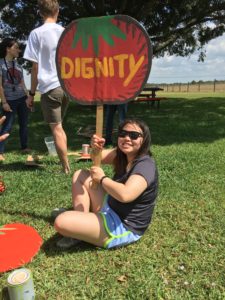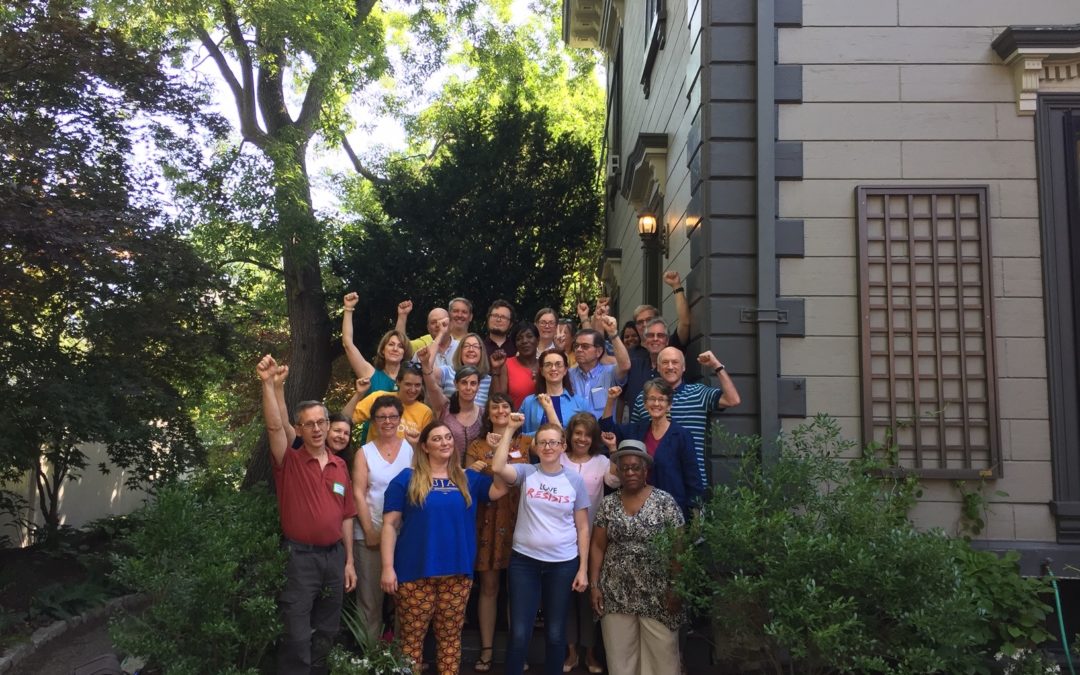
Critical Connections in the UU Universe
Did you know that there are twenty-two established UU State Action Networks (SANs) and more forming as we speak (find out if your state has a SAN here)? Did you know that there is a Coalition of Unitarian Universalist State Action Networks (CUUSAN) that acts as a central “meeting place” and seeks to support their work?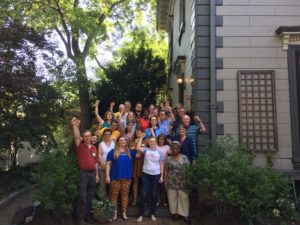
State Action Networks are an important part of the UU Universe as they do work on the local level and can connect congregations to justice work happening near them. We at UUCSJ, UUSC and the UUA are excited about the many ways we have been working more closely with these passionate advocates for spiritually centered social justice!
This July, leaders from many of the UUSANs came together with staff from UUSC, UUA and UUCSJ to build relationships, learn together and share with each other the work we are doing at all levels: local, national and international. Hear about how two of those leaders felt about the convening below.
The Maine Unitarian Universalist State Advocacy Network begins and ends our bi-monthly in-person statewide meetings with a Chalice Lighting accompanied by opening and closing words. One of my favorites is “Movements are born of critical connections rather than critical mass.” by Grace Lee Boggs.
The recent convening of representatives from most of the Unitarian Universalist State Action Networks in Boston in July lifted up each state’s focused legislative ministry and provided a platform for discovering potential national and regional social justice initiatives. Grateful thanks to UUSC and UUCSJ for bringing together key partners from the national UUA social justice family along with the SANs to build a movement of critical connections.
~ Julie Fitz-Randolph, Co-chair, Maine Unitarian Universalist State Advocacy Network, muusan.org
As the Chair of a SAN operating since 2005, I was eager to meet with other SANs and the UU movement’s advocacy leaders when this summer’s retreat was scheduled, and I was very pleased with the whole program. It is clear that the national UU groups (UUA, UUSC, UUCSJ) now see SANS as critical partners in building the movement, and the UUA has now agreed to include CUUSAN in future General Assemblies and refer attendees to local SANs to further the justice work developed at GAs. I particularly appreciated the clarification we were provided about the national movement’s “advocacy ecosystem” since there are so many UU groups active in promoting a just and sustainable world. We discussed how best to collaborate on shared goals, development/engagement, and national campaigns. Especially important will be our collaboration on 2020 election efforts to preserve and promote democracy.
The gathering also provided some helpful training and workshops on SAN missions & visions, Theory of Change, and Power Analysis – to help us define what we want and how we accomplish our goals. Focus on relationship-centered organizing will be important as we move to center our efforts on people most affected by government policies, especially those that maintain control by the white supremacist, capitalist patriarchy. We also learned from each other new ways to support members of our community in becoming and staying involved, and how to strengthen these connections.
The gathering would not have been possible for many SANs without the generosity of UUSC in hosting and its grants that made it affordable. This generosity is continuing with partial funding for a session on fundraising for SANs that is scheduled for September. I am truly grateful to those who are providing such needed support for our state-based work, and I look forward to working closely with other states and the national leadership in this sacred work.
~ Steve Buckingham, Chair of the UU Legislative Ministry of Maryland, uulmmd.org/
As one of the staff members present for this gathering, and someone who is moving into the new position of Coordinator for Congregational Activism here at UUCSJ and UUSC, this was an amazing opportunity for me to connect with activist leaders across the country. It was great to hear about the work they are doing, what ways we at the national level can support them, and to be in the same physical space rather than over zoom! I am especially grateful for the time we all took to map out the UU social justice universe. My colleague Abby Crum and I are using that work as the basis for an online tool that we can share more widely, so keep an eye out for that. Lastly, I’m excited about all the ways we will work together to engage Unitarian Universalists in the vital work of creating the beloved community.
~ Heather Vickery
Coordinator for Congregation Activism

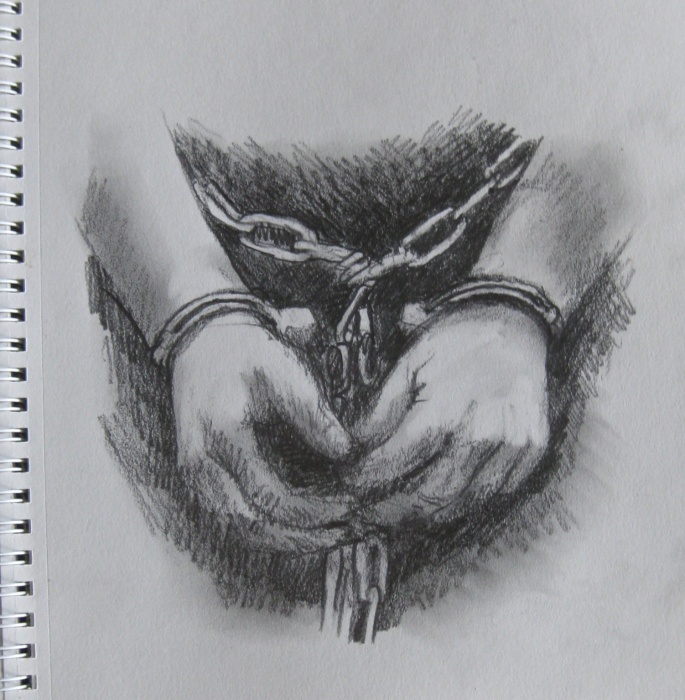
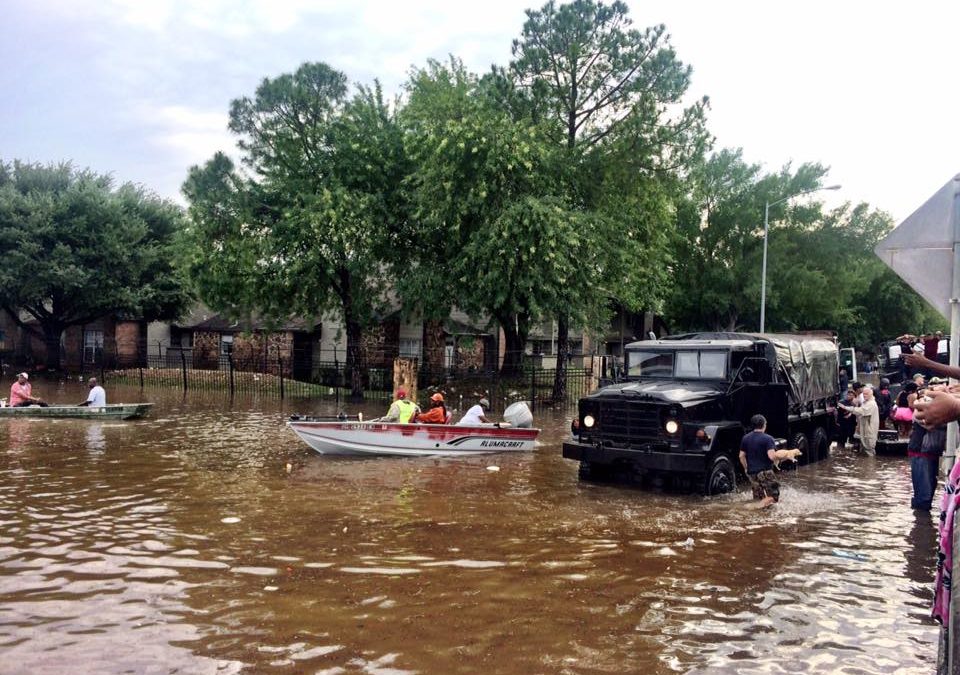
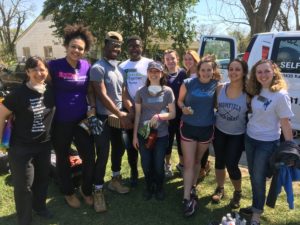 It was difficult to imagine hurricane force winds with the mild sun and chilly breezes we had been enjoying. On this day, the skies were clouded over and our guide directed our eyes to the gas flames being emitted above the petrochemical companies. We were standing in a children’s playground as we watched the gas burn. We were surrounded by houses. At a local mural, our guide pointed out the references to the petrochemical companies local children had drawn as a part of their community. This was their normal. These were all communities of color.
It was difficult to imagine hurricane force winds with the mild sun and chilly breezes we had been enjoying. On this day, the skies were clouded over and our guide directed our eyes to the gas flames being emitted above the petrochemical companies. We were standing in a children’s playground as we watched the gas burn. We were surrounded by houses. At a local mural, our guide pointed out the references to the petrochemical companies local children had drawn as a part of their community. This was their normal. These were all communities of color.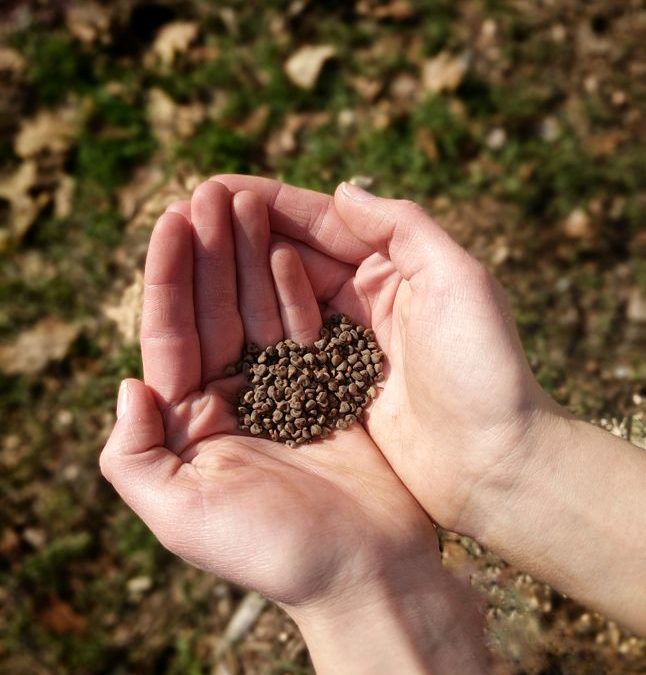
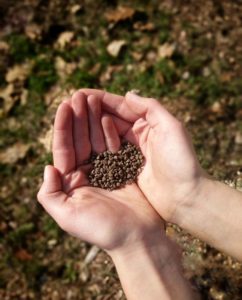
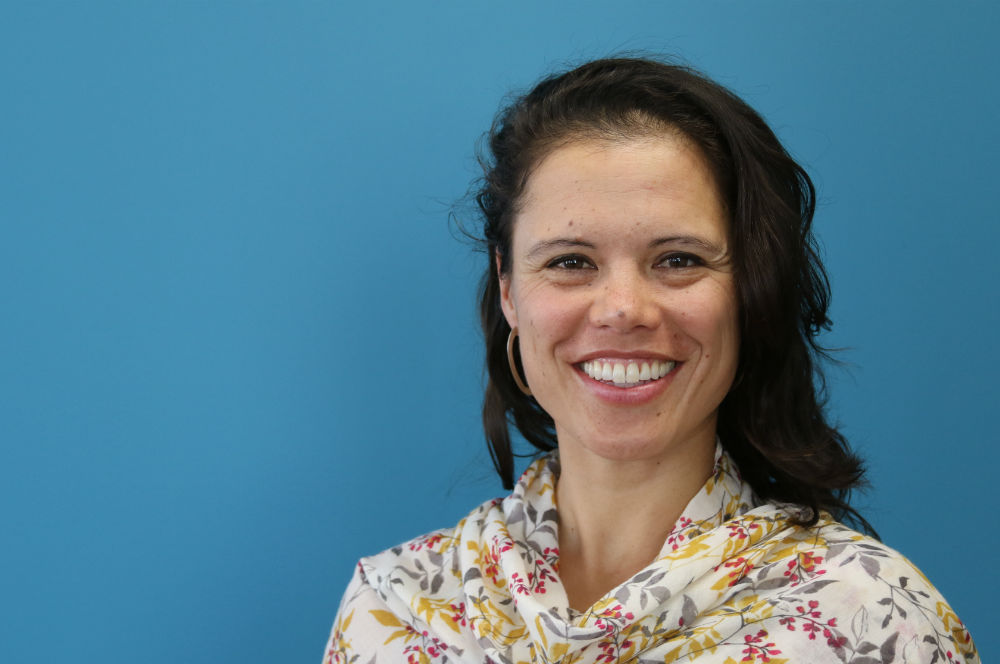
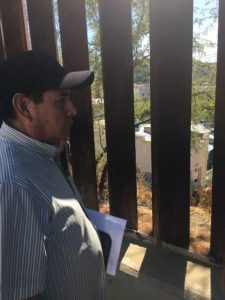
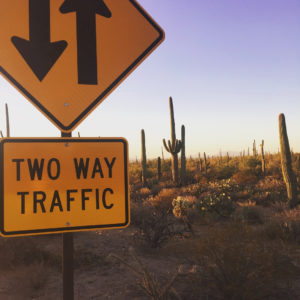 As I watched Borderlinks magnificently guide us through our itinerary, again and again I thought, “These borders are in our mind.” And privilege means that our emotive borders become physical borders. Privilege means that unjust borders can be something that we’re blind to. Privilege means sometimes not seeing the socio-economic, race-based, gender-based, body-based, culture-based (and so many more) borders that surround us constantly. “People used to visit here,” Manuel had told us. “They would set up chairs and talk.” Maybe that is one of the first steps we have to do to deconstruct the internalized borders we all carry within us. Set up a chair and talk to the person across. This might be part of the movement that then carries us through the work of dismantling and opposing the physical and legal borders being legally enacted around us. Only when the borders come down can people truly meet.
As I watched Borderlinks magnificently guide us through our itinerary, again and again I thought, “These borders are in our mind.” And privilege means that our emotive borders become physical borders. Privilege means that unjust borders can be something that we’re blind to. Privilege means sometimes not seeing the socio-economic, race-based, gender-based, body-based, culture-based (and so many more) borders that surround us constantly. “People used to visit here,” Manuel had told us. “They would set up chairs and talk.” Maybe that is one of the first steps we have to do to deconstruct the internalized borders we all carry within us. Set up a chair and talk to the person across. This might be part of the movement that then carries us through the work of dismantling and opposing the physical and legal borders being legally enacted around us. Only when the borders come down can people truly meet.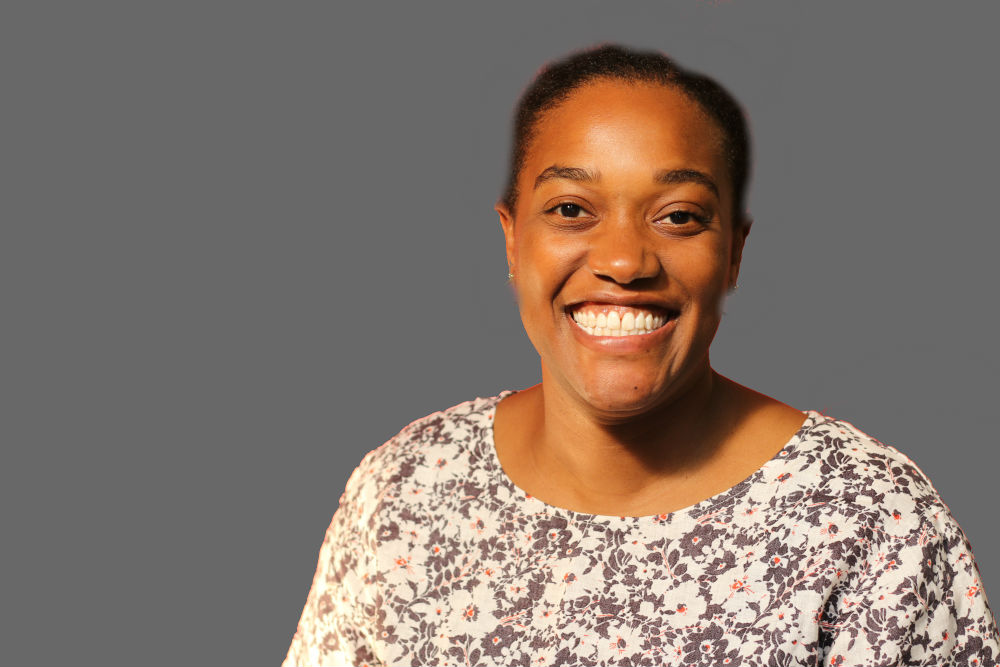
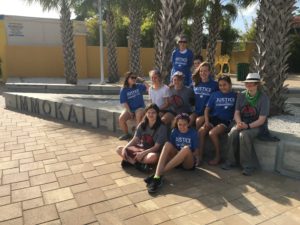 What do you think of when you hear, “Florida”? For many, the first words that come to mind are beaches, warm weather, vacation, and Disney World. For myself and the youth I led on a service learning trip to Immokalee, Fla., we do think of shared experiences, fun, and the outdoors. But above all else, we remember the inspiring farm and food justice organizers we met there, and the new framework for activism that they helped us build.
What do you think of when you hear, “Florida”? For many, the first words that come to mind are beaches, warm weather, vacation, and Disney World. For myself and the youth I led on a service learning trip to Immokalee, Fla., we do think of shared experiences, fun, and the outdoors. But above all else, we remember the inspiring farm and food justice organizers we met there, and the new framework for activism that they helped us build.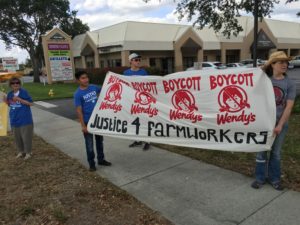 Like many low-wage workers across the United States, migrant farmworkers in Southwest Florida face wage theft, harassment, threats of deportation, and discrimination in their work environments. In the face of these injustices, the resilient Immokalee community works together to advocate for their rights, including through the
Like many low-wage workers across the United States, migrant farmworkers in Southwest Florida face wage theft, harassment, threats of deportation, and discrimination in their work environments. In the face of these injustices, the resilient Immokalee community works together to advocate for their rights, including through the 